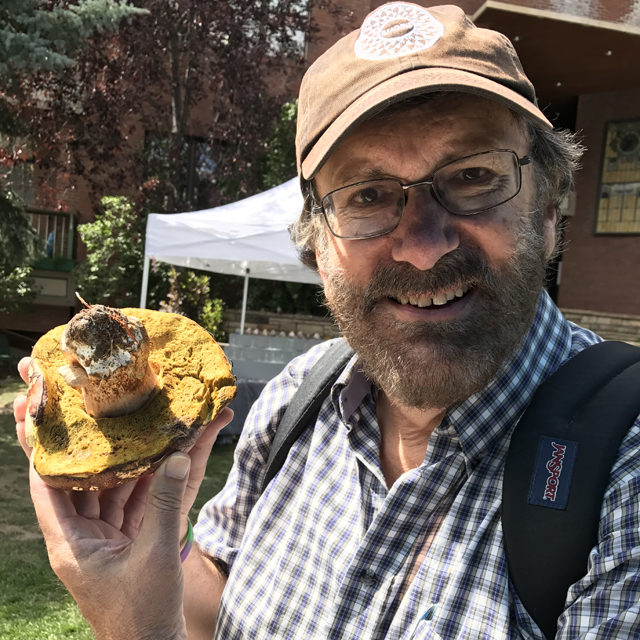
For journalist and author Don Lattin, the truth used to be simple, or at least it appeared to be. With capital “T” Truth as his profession’s first pursuit, Lattin spent a career diligently reporting his stories with a commitment to get at all sides of an issue. Until recently, he always wrote in the third person in hopes of providing expository and unbiased reports.
“As a journalist, I am really kind of old school,” Lattin says. “For most of my career, ‘I’ was a dirty word because it’s not about me, it’s about the story.”
But whether he likes it or not, Lattin acknowledges that the world of journalism is changing, and fast. He’s über aware of the rise of the blog-o-shepre, click-bait content and opinion pieces, and he worries that, in general, journalism is becoming too egocentric.
“I feel [first person reporting] is often self-indulgent,” he says. “At it’s heart, the job is to go out and do actual reporting, which is hard and expensive, but really important. So yeah, you could say I am actually concerned about the direction journalism is going.”
It isn’t just the macro-level changes that concern him, but specifically how the rise of pseudo-journalism might discredit the more controversial subjects of religion and psychedelics he researches. When dealing with the scientific legitimization of things like God and altered states of mind, it seems to him ever more important to maintain a line of objectivity.
Lattin’s latest book is a long-form investigation into the ongoing wave of scientific research and an epic attempt to offer in-depth coverage of the ongoing renaissance in psychedelic science. Changing Our Minds: Psychedelic Sacraments and the New Psychotherapy is in essence an unbiased look at the recent history and credible prospects for using MDMA, psilocybin and ayahuasca to treat mood disorders and promote spiritual well-being.
But what started out as a straightforward journalistic pursuit got complicated when he found the scientific community was wrestling with its own questions of objectivity.
“In writing the book, I found that there is a debate going on in psychedelic scientific and journalistic circles about how open people should be in talking about their own experiences, especially if you are breaking the law,” Lattin says.
“As a writer, what I struggled with in this book was when to get in, and when to get out, in terms of my story because it can begin to feel too self-indulgent. You want to be in it, to help the reader connect, but if you’re in it too much it becomes self-indulgent.
“Ultimately I thought it was important for me to experience the drugs and sacred plant medicines and to include that as a part of the narrative, although in limited measure. In the book, I am asking people to tell me very intimate details about their lives — about their addictions, diseases and psychological intimacies. I felt I had to sort of do the same.”
Coincidentally or not, considerations of egoism are not just prevalent in the ethical considerations of researchers, but in the nature of psychedelic experiences themselves. In treating certain psychological diseases — like, psilocybin-assisted therapy for addiction — is that the drugs allow people to transcend their ego.
“Scientists think the mystical state achieved by consumers while on psilocybin is, essentially, ego dissolution. That is to say that, by way of the drugs, you are suddenly connected to this bigger thing through which you obtain unitive experiences, a sense of oneness and feelings of gratitude and selflessness.”
To be sure, it can go the other way too, as a portion of users report feelings of grandiosity — reporting feeling like everything in the world is revolving around them. According to Lattin, to which side the cookie crumbles depends on and speaks to the larger question of “the whole human search for spirit thing.”
“It’s like that Beatles song, ‘Revolution,’” Lattin says. “‘You say you want a revolution? You know, that you want to change the constitution?’” He pauses to laugh. “Well, you know, ‘you’d better free your mind instead.’”
“Back in my day, when I first started thinking and experiencing psychedelic culture, that was the idea, anyway — before you get involved in politics you need to become more enlightened yourself. That’s all fine and good, but you risk becoming a navel gazer who is too self-indulgent.
“It will be interesting to see how the psychedelic community will evolve in that way … whether our conversations about evolutions in consciousness will be big enough to consider how it might change our world for the better and not just our own minds.”
Clarification and correction: In last week’s column, “Star power,” the author said the species had “no genetic precursors” and that there were “no near-genetic relatives of the plant.” Cannabis sativa has an inconclusive taxonomic organization and evolutionary history and no definitive claims can be made to that end.
Also, Cannabis sativa is not the “only plant in existence to display its gender physically” as written in the column.














